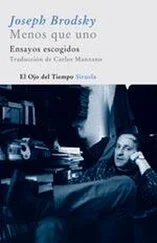The reporter looked at Ayyan and raised her eyebrows.
Adi went a bit faster now: ‘4943, 4951, 4957, 4967, 4969, 4973, 4987, 4993, 4999, 5003 …’ He went on and on like this and raised his voice as he finally said, ‘7841, 7853, 7867, 7873, 7877, 7879, 7883, 7901, 7907, 7919.’ And he stopped.
The reporter lifted her head from the sheet and clapped.
Adi removed the earpiece and threw a quick glance at his father when he realized his mistake. He put it back. The photographer started clicking.
‘Actually,’ Ayyan said, standing between the photographer and his son, ‘Can I make a request?’ He removed the earpiece from Adi’s ear and pushed it inside the boy’s shirt, ‘Can you take pictures of my son without the earpiece? You see, we don’t want him appearing as though he is handicapped in any way.’
‘I understand,’ the reporter said.
‘Could you please ensure that he does not appear in the paper with the hearing-aid?’
‘Don’t worry about that,’ she said, kindly.
The photographer asked Ayyan to stand by his son. And he started clicking.
‘How many pictures are you going to carry?’ Ayyan asked, somewhat amused.
The photographer did not respond. He continued to click and then stopped abruptly. He put the camera back in his bag and left without a word.
The reporter set her scribbling-pad on her lap, poised a pen in the air and smiled at Adi.
‘You are really brilliant, Aditya,’ she said in English. ‘Can I ask you some questions now?’
Ayyan put the earpiece back in the boy’s good ear. It was a Walkman earpiece, fixed to the shell of the hearing-aid. The Walkman was inside the boy’s shirt, taped to his stomach.
‘Can you hear?’ Ayyan whispered to his son. The boy nodded.
‘I’d like to ask you some questions now, Aditya,’ the reporter said.
‘OK,’ Adi said, gulping down a glass of water.
‘Why are you interested in prime numbers?’
‘Prime numbers are unpre … unpredictable. So I like prime numbers.’
‘How are you able to recite all these numbers, so easily, from memory?’
The boy lifted his finger as though to point to the earpiece. Then he started giggling. ‘I don’t know,’ he said.
‘What are your future plans?’
Adi shrugged and looked at his father. ‘He is very shy, you know,’ Ayyan said.
‘What do you want to become?’ the reporter asked, ignoring Ayyan.
Adi looked at his father again and giggled coyly.
‘He is not very easy to talk to,’ Ayyan said. ‘I can answer for him, if that makes it easier for you.’
She considered the offer.
‘About a year ago,’ Ayyan said anyway, his voice soft and conspiratorial, ‘When I was teaching him numbers, I observed that he was seeing patterns. He would select numbers like three, five, seven, eleven and tell me that he liked them. I later realized that he felt that way about all prime numbers. How he began to identity prime numbers is a mystery to me.’
IN THE GLOW of the morning light that illuminated the flies, people stood with their little buckets in two silent lines. Even though they never spoke English here, when they stood like this every morning, they regarded themselves as Ladies and Gents. The two arched windows high above the common toilets, some of their glass broken long before the memories of these people began, were ablaze in a blinding light as if God were about to communicate. Ayyan arrived at the end of the gents’ line, in loose shorts and an oversized T-shirt, holding a blue bucket and The Times of India. A man who was ahead in the line spotted him and said, ‘I saw the article today.’ Slowly, heads turned, and the news went round that Adi had now appeared in The Times of India.
Portions of the toilet queues disintegrated and people gathered around Ayyan whose copy of the newspaper was now unfurled. At the bottom of the ninth page was an article that said, ‘Boy Genius Can Recite First Thousand Primes’. There was a striking photograph of Adi, beaming. In the picture, he was wearing what looked like a hearing-aid. When Ayyan had seen the item in the morning he had silently cursed the reporter and the photographer. But nobody noticed that Adi was wearing the earpiece of the hearing-aid on his right ear, the good ear. Not even Oja. It was not an easy thing to spot.
Some women set their buckets on the floor and jostled to get closer to the paper. ‘But I don’t understand what the boy has done,’ someone said.
So, in the faint stench of urine, shit and chlorine, and in the enchanting illumination of morning light, Ayyan explained what prime numbers were. And the people of the toilet queues looked at the father of the genius with incomprehension, affection and respect. Mothers asked him what they should do to make their children half as bright, what must they teach, what must they feed? Was Lady’s Finger really good for maths? Should boys be allowed to play cricket? Then matters moved beyond Adi.
‘Another offer has come from a builder,’ a man said. ‘What is your suggestion, Mani? Should we sell?’
‘How much?’
‘I hear he is offering twelve lakhs for a flat.’
‘We should sell,’ Ayyan said. ‘We should sell and leave this place. We should live in proper flats. How long must our children live in this hell?’
‘But we are used to this, aren’t we?’
‘Our lives, my friend, are over. For our children, we must move.’
Ayyan stood in the porch of the Institute, facing the blackboard near the main stairway. He wrote the Thought For The Day: If you want to understand India, don’t talk to Indians who speak in English — Salman Rushdie. Adi was standing at a distance, near the lifts. He was in his favourite outfit — a blue half-sleeve shirt, white jeans and fake Nike. The Brahmins had summoned him. They had read the article in The Times and they had called Ayyan on his mobile. They wanted to see for themselves a Dalit genius, though they had put it differently. Ayyan could not resist the entertainment of watching those great minds mill around his boy, expressing their grand acknowledgement of his infant brilliance. Genius to genius, they would make it all seem. But he was certain that this was the last day of Adi’s genius. He had told his son last night on the tar-coated terrace of BDD, the game was now over. He would not be given clever things to say in the middle of the class any more, quiz questions would not magically land on his lap, articles about him would not appear in the papers. Adi had nodded, a bit sadly, but he had understood. The game, his father made him repeat, was over.
Adi liked his father’s office, even though he found the word ‘Institute’ terrifying. The sea was so close here and only people with special passes could go to the black rocks. The garden was flat and green, and nothing happened there. Crows chased coloured birds in the sky. And everything was far from everything else. But what Adi liked the most was the lift. He loved the way the lights crept across the numbers. And he loved its hum, like an old man about to sneeze. His father said that the lift was a robot, which made him like the lift even more. He had been here many times. His father often brought him and his mother on Sundays. They sat on the rocks by the sea or walked around the building, or went up and down in the lifts. On Sundays the place was empty. But today was a working day. So it was full of people. That’s why he was silent in the lift though some people were smiling at him. They smelled very good. They smelled like the inside of a car. Not a taxi but a real car. He had been inside L. Srini’s car once. He liked the smell of a car.
They were on the third floor. The door opened and a lot of people waited outside to get in. He wanted to spend his entire life going up and down in the lift. But his father held his hand and they went down the longest corridor in the world. He had seen it before, on Sundays. He preferred the corridor dark and empty. Then it looked like a road in the comics. People on the corridor looked at him and smiled.
Читать дальше












